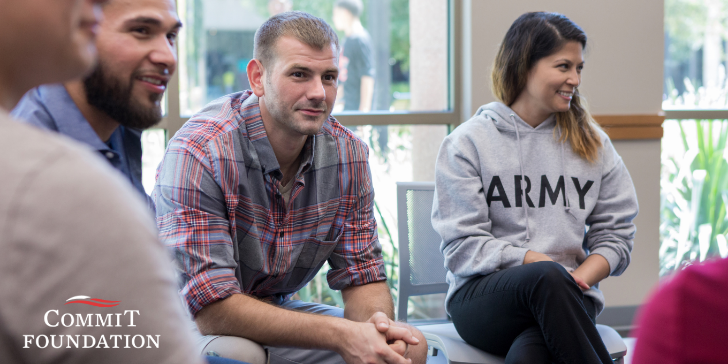
Apr 18, 2024
Ways for Veterans to Make Friends in a New City
Why Social Connections Matter After Service
Veterans bring valuable experiences and skills to the private sector. Really, many businesses and communities place a premium on the leadership, dedication, and resiliency that service members have honed during their careers. Still, transitioning to civilian life after military service is a significant adjustment.
No matter how many times you received a permanent change of station order during your military service, navigating a new city and social landscape as a veteran can be daunting.
Building strong connections with others is key to a successful transition. Friendships provide a sense of belonging, support, and shared experiences--all of which contribute significantly to a veteran's overall health and well-being.
Mental and Physical Benefits of Friendship
Improved Mental Health: 44% to 72% of service members already report high levels of stress when returning home from active duty. Loneliness and isolation are significant risk factors for exacerbating underlying conditions of depression and anxiety. Strong social connections can reduce stress hormones, improve mood, and boost self-esteem.
Sense of Belonging: Moving to a new city can be disorienting. Military life is structured and routine, right down to the uniform on your back and the shoes or boots you put on your feet. In a new city, all those routines are disrupted. Friendships help veterans feel battle this feeling of disorientation, connecting them to their new community, providing a sense of belonging and fostering a feeling of being "at home."
Shared Experiences: Veterans often share unique experiences that can feel uncomfortable to share with civilians, including their own families. Friendships with other veterans can be especially valuable, offering a space for understanding, shared experiences, and camaraderie.
How to Build Friendships in a New City
Veterans need tactics to achieve connections that will lead to satisfying and healthy lives after separation. Try these five approaches to making friends in a new city.
Leverage Existing Resources
Military Organizations: Attend social events and support groups held by veteran service organizations like the American Legion or VFW. These provide a great way to connect with other veterans who understand your background. It may be a less formal arrangement, but many veterans are enthusiastic to serve as a de facto personal sponsor for new arrivals to a city, sharing the insights they’ve learned along the way.
Military OneSource: Military OneSource offers a variety of resources for transitioning veterans, including local support groups.
Commit’s Platform through Circle: Veterans who sign up for The Commit Foundation have access to our online community comprised of other veterans, mentors, and industry professionals. The platform is not only a great asset for your post-military career but also helps you build relationships with like-minded individuals.
Explore Your Interests
Hobbies and Passions: Leaving the structure of military life can offer a new flexibility to explore new hobbies. Join a club or group focused on your interests – sports leagues, book clubs, art classes – anything that sounds fun. This is a great way to meet people who share your passions.
Volunteer Opportunities: Consider volunteering for causes you care about at local non-profits. This is a great way to meet like-minded people and there are documented benefits to personal well-being when you volunteer. A Gallup poll indicates that community service can increase well-being scores by nearly 20%.
Local Events: Check out community calendars and attend local events - farmers markets, festivals, art walks - to get involved and meet new people.
Take a Class: Enroll in a class at a local community college or adult education center. Learning a new skill is a great way to connect with others.
Embrace Your Neighborhood
Strike Up Conversations: Don't be afraid to chat with your neighbors at the coffee shop, dog park, or local gym. With a little practice, you can start a conversation with anyone. Friendly greetings and small talk can blossom into friendships.
Community Activities: Get involved in neighborhood initiatives – clean-up days, block parties. This is a great way to interact with your neighbors and build a sense of community.
The military depends upon a frequent flow of service members transitioning between stations as well as into and out of active duty. To accommodate this, “Hail and Farewell Parties,” the Welcome Wagon, and other systems and practices exist to ease transitions and quickly integrate individuals into the unit. Civilian jobs and neighborhoods rarely have these kinds of systems in place. The effort will rest on your shoulders.
Be patient with those around you, and especially be patient with yourself. Transitioning to veteran status is a major life-changing event, and doing anything well takes dedication and resiliency – two qualities that military personnel develop in abundance.
Be open to new experiences and keep putting yourself out there. You'll eventually find people who share your values and complement your life. Start your journey by creating a Commit Foundation account.
 Back to all blogs
Back to all blogs



